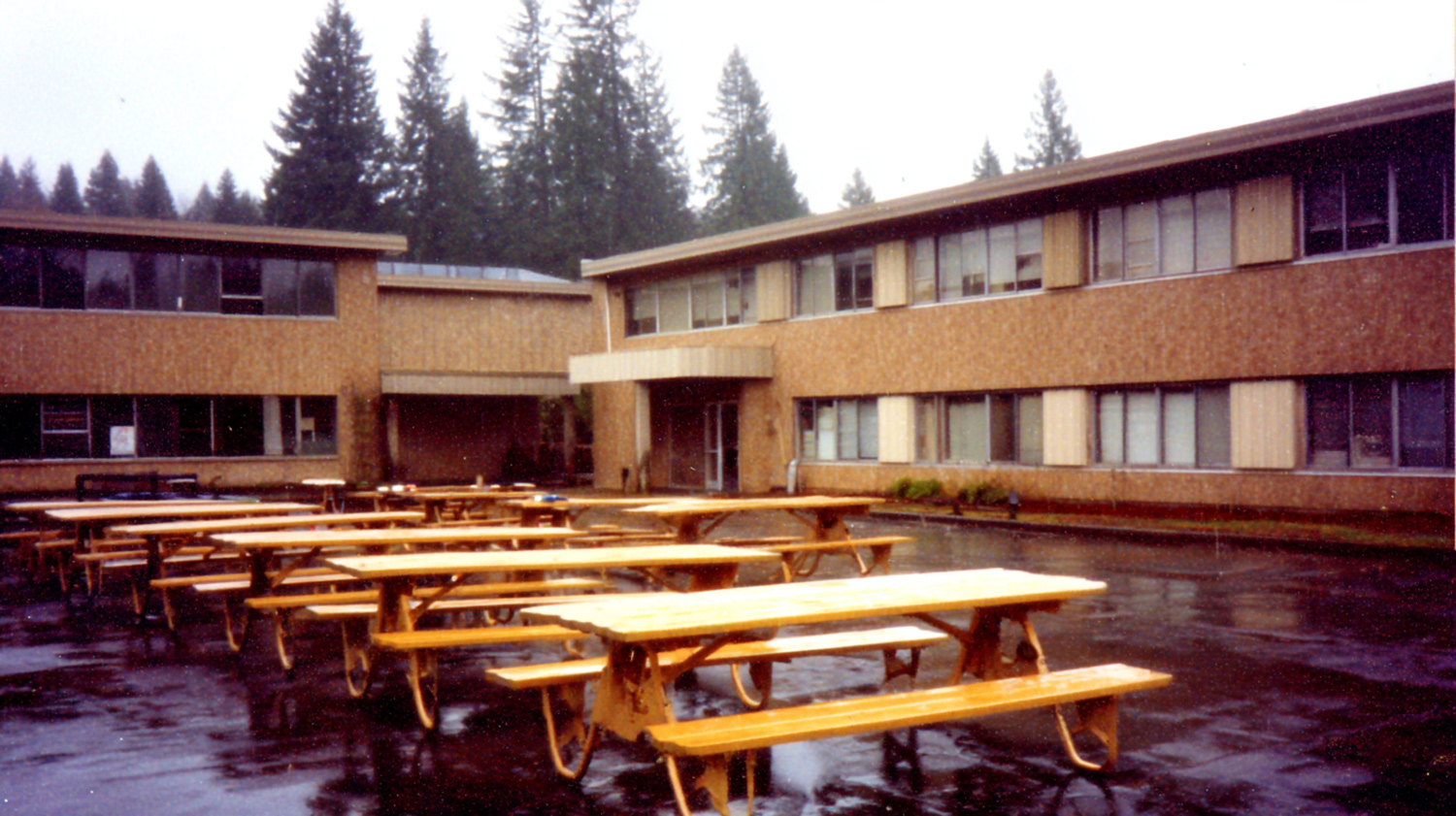
Trade School vs. College: The Complete Cost, Career, and Outcome Comparison
A closer look at the numbers—and the questions—behind one of the biggest decisions families face. Compare costs, debt, earnings, and job market data.
Expert guides and insights to help you navigate school choices, college admissions, financial aid, and your child's education journey.

A closer look at the numbers—and the questions—behind one of the biggest decisions families face. Compare costs, debt, earnings, and job market data.

Explore the unexpected culinary careers beyond the restaurant kitchen—from R&D chefs and food technologists to sustainability consultants and content creators—and what they mean for your kid's future.

How beauty industry compensation really works, what determines whether you earn $30,000 or $130,000, and how social media and suite rentals are reshaping the business model.

A state-by-state guide to cosmetology licensing: training hours, exams, reciprocity rules, school accreditation, and what families need to understand before choosing a beauty school.

A side-by-side comparison of six healthcare careers that don't require a bachelor's degree—with 2024 salary data, job growth projections, and credential stacking strategies.

A comprehensive guide to healthcare vocational programs—from phlebotomy certificates to dental hygiene degrees—covering salary data, accreditation, stackable credentials, and career pathways into medicine without a four-year degree.

A data-driven guide to the highest-paying trade school careers, with salary data from BLS May 2024 statistics, job growth projections through 2034, and how to enter each field.

A complete guide to paying for trade school—covering FAFSA eligibility, Pell Grants, state free-tuition programs, trade-specific scholarships, employer reimbursement, and apprenticeships.

A data-driven guide to cosmetology school costs, salary reality, licensing requirements, and career paths in the beauty industry.

A clear-eyed guide to culinary school costs, chef salaries, career paths, and whether formal culinary education is worth the investment compared to learning on the job.

An honest guide to becoming a CNA—covering demand, daily work, training requirements, pay reality, and whether the CNA-to-LPN-to-RN career ladder actually works for most people.

What does culinary school actually teach that YouTube and online tutorials can't? From tacit knowledge and food safety to professional networks and kitchen management, here's what formal culinary education really delivers.

What the GRE-Optional Movement Means for Graduate School Applicants. Universities like MIT, Stanford, and Harvard are dropping the GRE requirement as research questions the test's predictive value.

How to Choose the Right Graduate Degree. An in-depth analysis of what distinguishes master's and doctoral programs, their costs, career outcomes, and which path suits your goals.

More than 80 percent of U.S. colleges are now test-optional, yet elite institutions are reinstating testing requirements. Understand what this shift means for your college application strategy.

A warm guide to fun educational activities for K-12 that do not turn your living room into a classroom. A research-informed parenting feature.

Why the labels can help, and when they quietly make things harder. Research shows authoritative parenting works, but the real question may be what your child needs from you right now.

What the data actually says about the value of a degree. College graduates earn $1.2 million more over their careers, but ROI varies dramatically by field and institution.

With 39% of core job skills expected to change by 2030, schools are reimagining education through project-based learning, computational thinking, and 21st-century skills to prepare students for an unpredictable future.

A comprehensive parent's guide to making the right school choice. Learn about school types, using data and ratings wisely, conducting school visits, and asking the right questions.

This article draws on peer-reviewed research in cognitive psychology, educational psychology, and learning science to examine what evidence shows—and doesn't show—about effective test preparation.

When test scores matter—and when they don't—for your child's college future. A comprehensive guide to SAT preparation, tutoring costs, and what the research says about score improvements.

How digital exams, memory algorithms, and generative tools change what actually works. A guide to modern test preparation strategies.

How America is rediscovering the value of skilled trades education as the country faces a profound labor shortage, with modern CTE programs, apprenticeships, and infrastructure investments driving a vocational renaissance.
How schools are teaching digital citizenship to prepare students for a world where nearly half of teens are online almost constantly, covering cyberbullying, misinformation, privacy, and media literacy.

A research-based look at how sports participation affects academic performance, mental health, and social development in K-12 students, including guidance on avoiding burnout and addressing equity gaps.

A practical, pick and do guide for families who want learning that feels like play. Includes activity menus by age, weekly routine templates, and quick resources.

How families can reach a top university for far less money without losing time, credits, or confidence.

How the rise of generative AI, automation, and data driven work is reshaping what schools should teach, and why the most valuable credential may be the ability to keep retooling.

Research-backed guidance for families navigating the unregulated college coaching industry. Learn what credentials signal quality, red flags to avoid, and what to expect from coaching services.

The 2025 cycle looked less like a tidy decision season and more like a market that kept clearing after the bell. Here is what is driving it, how the mechanics actually work, and how parents can protect both options and sanity.

College admission has become a forensic art. The traditional signals still exist, but many of them have been scrambled, softened, or strategically arranged. Here's how admissions offices really evaluate applicants in 2025.

How Gen Z is embracing vocational schools and skilled trades as an alternative to college, amid a growing labor shortage and changing attitudes about career paths.

What parents of children with IEPs need to know about charter schools, including legal rights, essential questions to ask, warning signs, and recourse when problems arise.

Sleep deprivation among children and teens is widespread—and the consequences extend far beyond grogginess. Here's what the science says about children's sleep needs by age, circadian rhythms, and what parents can actually do.

Understanding the application process, lottery systems, and what it takes to get into magnet schools across the United States.

Why the numbers matter, why they don't, and how parents can stay sane in the meantime.

The research is promising but complicated. What actually matters is finding the right fit for your particular child.

A comprehensive guide to school choice in America, explaining charter schools, magnet programs, vouchers, and what the research says about their effectiveness.

Why your 4.3 weighted GPA might mean less than you think—and why a 3.8 with the right courses could mean more. A guide for families navigating GPA calculations and college admissions.

A comprehensive analysis of fellowships, assistantships, employer benefits, federal loans, and strategic approaches to minimizing graduate school debt.

What research says about academic redshirting—and what it means for your child. A comprehensive look at the evidence behind holding children back a year before kindergarten.

Bullying can start quietly, years before the word ever shows up in a school handbook. Here is what the research says, what parents tend to miss, and how to respond in ways that protect your child.

A research-informed guide to spotting red flags—not to discourage choice, but to make it wiser.

What really matters when choosing a preschool—and how to find it. A comprehensive guide for parents on evaluating early childhood programs.

A practical guide for navigating rejection, exploring alternatives, and finding the right path forward for your child.

What parents need to know about undecided students and career-connected degrees in an AI-shaped job market.

A comprehensive guide to magnet school lottery systems, explaining how random selection works, weighted preferences, waitlist dynamics, and strategies for managing the process.

A guide to writing authentic college application essays that reveal genuine self-knowledge in an age of AI.

Understanding magnet school transportation policies, challenges, and what families need to know about getting students to specialized programs.

Finding the right elementary school means looking beyond test scores to understand how a school's culture, teaching approach, and community will support your unique child.

The complete 2025 guide for parents covering kindergarten entrance age requirements for all 50 states, including recent policy changes, early admission processes, and practical guidance for families.

A comprehensive guide for parents comparing public and private schools, covering costs, performance, class size, special needs, and how to make the right choice.

Major changes under the One Big Beautiful Bill Act reshape federal aid—here's what families need to know about the 2026-2027 FAFSA.

How career and technical education is transforming American high schools, giving students real-world skills and clarity about their futures.

A practical guide for parents on evaluating schools, understanding ratings, and finding the best educational fit for their child.

What parents need to know about kindergarten separation anxiety—in children and in themselves. Understanding the psychology behind drop-off struggles and strategies that actually help.

Federal policy overhauls, servicer meltdowns, and fintech disruption are forcing a fundamental rethinking of how Americans finance higher education.

A definitive guide to the two federal frameworks that provide support for children with learning differences—how they work, what they provide, and how parents can navigate each system effectively.

A comprehensive guide to magnet schools covering their history, program types, how they differ from charter and private schools, and the application process.

A comprehensive guide for parents on magnet schools, explaining how they work, the types available, admission processes, and how to find the right fit.

The search for the right early learning environment is more nuanced than checklists suggest—and more forgiving than anxious parents might fear.

A guide for parents on preparing children for a future where AI handles routine tasks, focusing on critical thinking, creativity, and human skills.

A comprehensive guide to understanding how charter school lotteries work, from preference categories and unified enrollment systems to waitlists and strategic approaches.

Understanding the neuroscience, psychology, and practical strategies behind one of childhood's most challenging developmental transitions.

A comprehensive comparison of magnet schools, charter schools, and neighborhood schools, covering governance, admissions, transportation, academics, and what matters for your family.

Before you enroll your child in a charter school, here's how to look past the glossy brochure and assess whether the institution is built on solid financial ground.

From 13 credits in Wyoming to 26 in Texas, the requirements for a high school diploma vary dramatically across the country. Understanding your state's specific rules—and how local districts may add their own—is essential for planning your student's path to graduation and beyond.

A warm, research-informed field guide for school tours. Learn what questions to ask, what to look for, and how to evaluate whether a kindergarten is right for your child.

A comprehensive guide to understanding the spectrum of magnet school admissions—from open-access lottery systems to highly competitive criteria-based and audition programs.

The research on what actually matters in early childhood education—and how to find it during a 30-minute tour.

An in-depth look at declining physical activity among American children, the health consequences, and what parents and schools can do about it.

Navigating the path from early concerns to an IEP—and learning to advocate for your child along the way.

For millions of American families, the path to college has become a labyrinth of forms, formulas, and financial gambles. A guide to navigating the maze.

Research shows that the quality of teacher-child relationships matters more than educational philosophy. Here is what the evidence says.

How strategic timing, algorithmic matching, and data-driven decisions have transformed the path from high school junior to college freshman.

What parents need to know about cyberbullying in middle school and how to help when the harassment never seems to stop.

From FAFSA modernization to AI-powered scholarship matching, the infrastructure of financial aid is undergoing its most significant transformation in decades.

A comprehensive guide to California's Universal TK program reaching full implementation in 2025-26—eligibility, teacher requirements, how it compares to other options, and whether it's right for your child.

A comprehensive guide for parents considering charter schools, covering how they work, admissions, funding, and tips for evaluation.

The question isn't whether charter schools are good or bad—it's whether one might be the right fit for your particular child and your particular family. Here's how to think it through.

A complete readiness checklist covering the seven key domains of kindergarten readiness, with specific milestones, activities to build skills, and red flags that warrant professional attention.

The emerging stack behind college and graduate funding—how discovery, eligibility, verification, and review are being transformed by technology.

Understanding the warning signs of teen mental health struggles—and what parents can actually do about them. A guide for families navigating adolescent anxiety and depression.

A parent guide to asking the right questions on a charter school tour and evaluating whether it is a good fit.

A guide for parents on STEM schools, explaining what they are, how they work, and how to determine if one is right for your child.

Nearly 23 million children whose parents want them in after-school care cannot get it. For those who can, the right program might matter more than we thought—and finding it is harder than it should be.

How Many to Take, Which Ones Matter, and What Colleges Really Want. A technical analysis of the Advanced Placement system and its role in college admissions.

More law schools than ever accept the GRE, but applicant behavior tells a more complicated story. Here's what you need to know about the post-logic-games LSAT, school policies, and the strategic calculus of test selection.

A national map of a process that often feels like a maze, plus the parts you can actually control.

What the research shows about how children learn to read, why 'three cueing' has become a flashpoint, and what parents can look and listen for when they talk with their child's school.

What six decades of research actually tells us about early childhood education—the benefits, the limits, and what it means for your family.

Your child probably does not need flashcards. A guide to what kindergarten actually expects—and what you can do to help.
No articles found in this category.